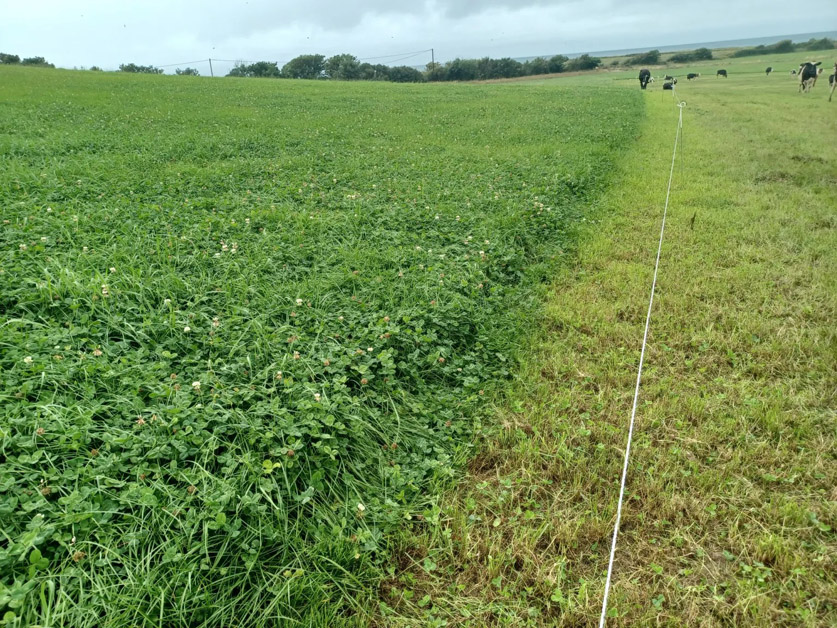Like it or not, sustainability and the reduction of carbon emissions have become crucial elements of farming. Alarmingly, planet Earth’s ever-increasing levels of greenhouse gases are contributing to dangerous levels of climate change. Consequently, governments around the world are taking action to reduce greenhouse gas production.
Life without BPS
The UK government has designed the Sustainable Farming Incentive (SFI) and Future Farm Resilience Fund (FFRF) to help farmers reduce their environmental impact and provide alternatives to the Basic Payment Scheme (BPS). Many businesses are recognising the benefits of engaging with these initiatives, to ensure that their enterprises remain viable.
Oak Farm, Cheshire – creating a stronger business
Applying to these schemes can eat up your precious time, so I asked Promar to help.
Stephen Sherratt, Oak Farm
Dairy farmer Stephen Sherratt, of Oak Farm, Cheshire, initially engaged with FFRF because he wanted to stay up to date with the demands of his buyers for carbon-footprint data. Additionally, he wished to identify and analyse the strengths and weaknesses of his business, and to trim out elements that he suspected were draining his profits.
He began by commissioning a carbon-footprint assessment, under the FFRF. “Applying to these schemes can eat up your precious time, so I asked Promar to help,” he explains.
Mr Sherratt was particularly interested in how to reduce his farm’s methane emissions, which he suspected would be high because of the uncovered slurry lagoons and broadcast spreaders that he used on his fields.
Measuring manure
Back in 2021, when alarming fertilizer price inflation began, Mr Sherratt had decided to increase his farm’s reliance on manure as the soil nutrient. In doing this he noticed that he maintained grass yields and saw a rise in local bird life too.
Mr Sherratt knew from experience that slurry would enhance his soil’s nutrient retention and the stability of its structure. However, he did not know the extent of the improvement. “I wanted to understand how and why my grassland yield had stayed the same, whilst stopping buying in fertilizer. Also, I wanted to know what carbon my land was sequestering given the emphasis most consumers and dairy companies are now putting on this, for sustainability purposes.”
Measurement, data, and interpretation are key to sustainability
Mr Sherratt worked with Promar’s George Peart to sample and analyse his farm’s soils. The project cost him £150 in soil sampling fees, whilst the advice, soil report and carbon footprint were covered by the FRFF.
As part of its analysis, Promar advised him that he could use soil sample information from his grassland parcels to make use of SFI grants as part of the Improved Grassland standard. Also, Promar recognised that, because Mr Sherratt takes his livestock off the grounds in winter, his farm qualifies for a mid-tier countryside stewardship grant on other parcels (Grant option SW9).
Overall, Mr Sherratt has discovered that, based on a very modest and reclaimable outlay, Oak Farm has been able to replace its BPS with new incentives. “It requires quite a bit of paperwork, so I get Promar to do that. It allows me to get on with my farming,” he says.
Farming smart to achieve more
The soil sampling and analysis project has provided Mr Sherratt with accurate figures on his farm’s carbon sequestration. This has enabled him to create a virtuous circle for his business, because he can use this data when applying for further funding.
Additionally, he can use the information to inform decisions to further improve soil health, crop yields and even increase his farm’s carbon-capture efficiency. Furthermore, his funded carbon audit provides evidence that satisfies the demands of his milk buyer.
Tap into FFRF for sustainability
DEFRA’s Future Farm Resilience Fund (FFRF) is in place to provide fully funded support to farmers. It exists to encourage long-term sustainability and resilience for farm businesses.
To start things off, register for a fully DEFRA-funded FFRF consultation. It’s a quick process, and can become your springboard to creating a fully planned strategy, so that your farm will thrive in the new business environment.
Alternatively, for more information about making your farm sustainable and future-proof, please contact George Peart, george.peart@genusplc.com




